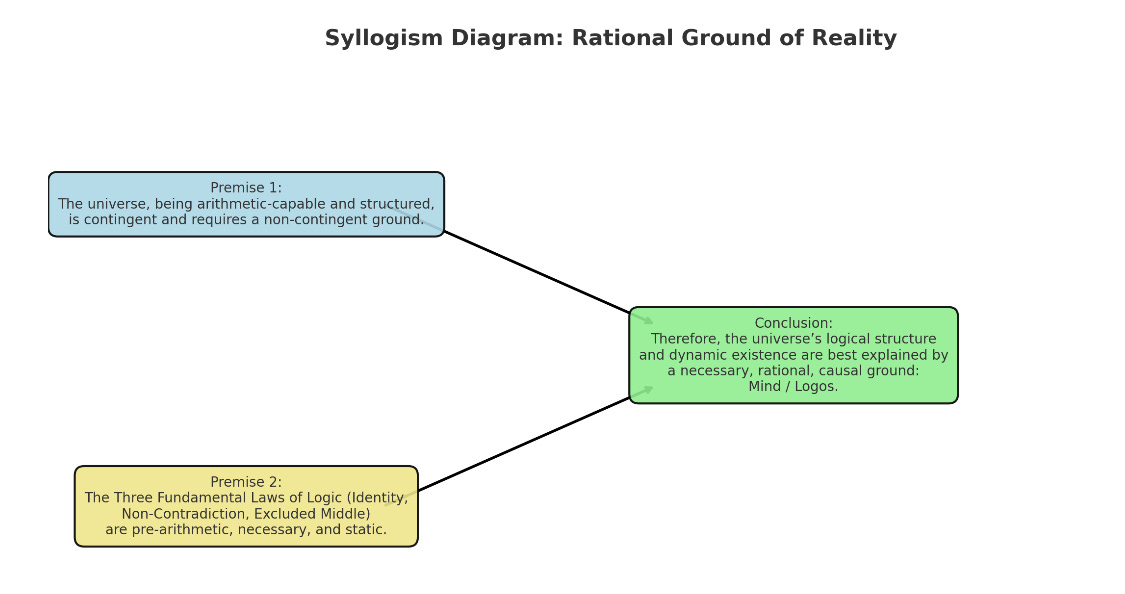Does Reason Point Us to God?
A Case for Reasonable Faith
Christians are sometimes told that faith and reason live in different worlds, that we believe blindly while science and logic belong to skeptics. But the truth is exactly the opposite: faith is deeply reasonable, and reason itself points us toward God.
The Problem of Explanation
Every worldview has to answer this: why is there something rather than nothing, and why does it all make sense?
The atheist often stops with “it just is.” The universe exists with its laws and order, no further explanation needed. But that answer falls flat. If the universe is contingent (meaning it could have been otherwise), then simply saying “it just is” leaves us with a dead end.
Three Anchors of Reason
The Bible tells us that God is the Creator, and even our thinking reflects His nature. This is why reality always obeys what philosophers call the Three Fundamental Laws of Logic:
Identity: A thing is what it is.
Non-Contradiction: Nothing can both be and not be in the same way at the same time.
Excluded Middle: For any statement, it is either true or false.
Without these, science collapses. Evidence would mean nothing. You cannot even ask for “proof” without assuming these laws. And these laws are not invented by us, they describe the very structure of being.
Why the Laws Alone Aren’t Enough
But here is the key: these laws are static. They explain order, not motion. They give the rules of the game, but not the reason the game is being played at all. The world is dynamic: galaxies spin, atoms interact, time marches forward. That requires something more than abstract rules.
“It Is What It Is” vs. “I Am Who I Am”
Here is where the fork in the road appears:
The naturalist says, “The universe just is what it is.” That is a brute fact, opaque, unexplainable, ultimately meaningless.
Scripture points us to a better answer: God says, “I AM WHO I AM” (Exodus 3:14). God is not a brute fact but the necessary, rational, self-existent One, the Logos, who both grounds reason and sustains creation.
Why This Matters
If we stop at “it just is,” we are left with circularity (the universe explains itself) or infinite regress (an endless chain of explanations with no anchor). But if we follow reason through, we find it leads to a Mind behind reality, a God who not only makes the universe intelligible but gives it purpose.
As Christians, we do not believe against reason. We believe because reason itself whispers what Scripture proclaims loudly: In the beginning was the Word (Logos), and the Word was with God, and the Word was God (John 1:1).
Do you want me to also adapt the syllogism diagram into a simpler, believer-friendly chart (Premise 1 → Premise 2 → Conclusion) for this Substack version? That way your readers get both the words and the picture.


